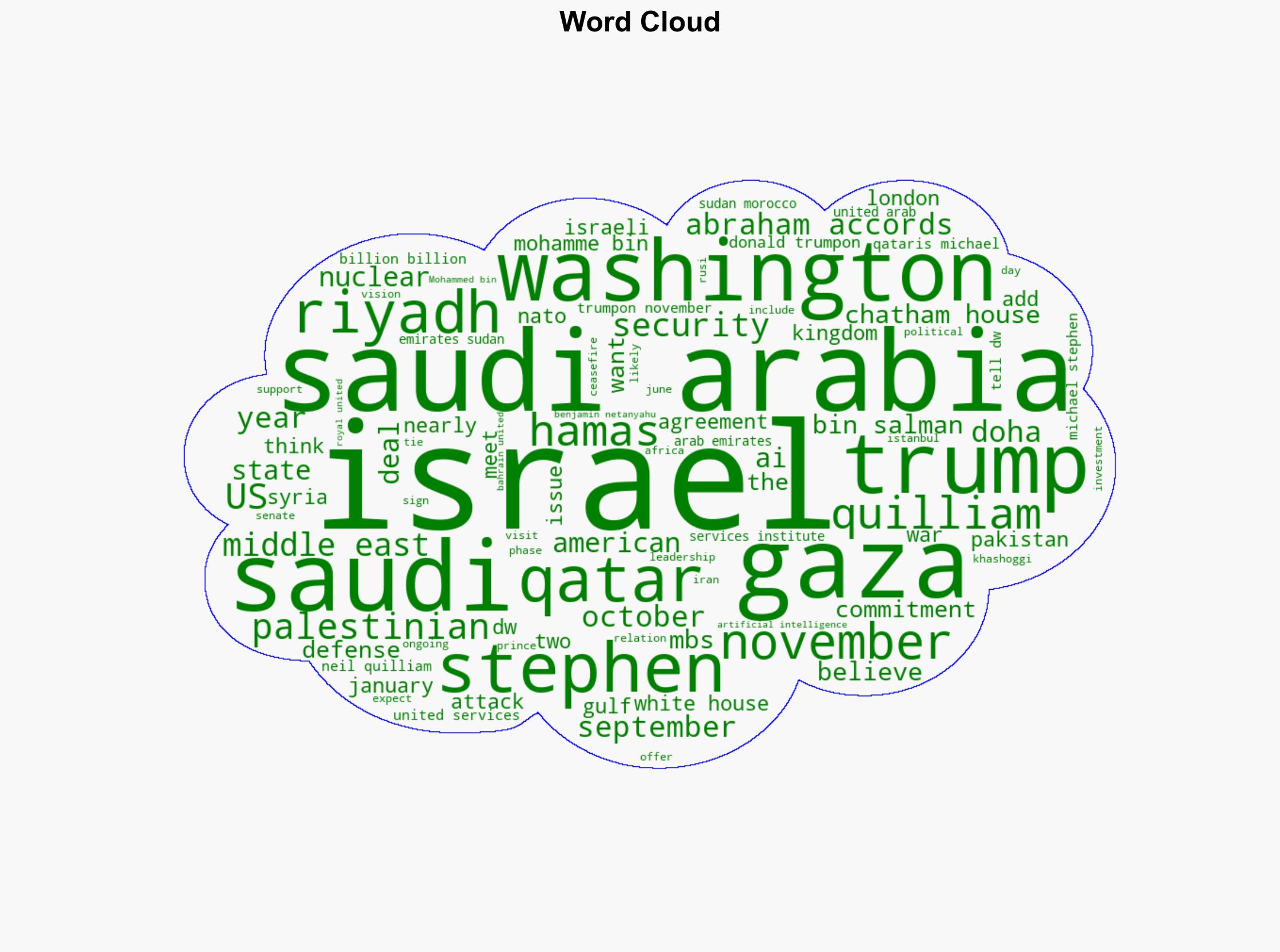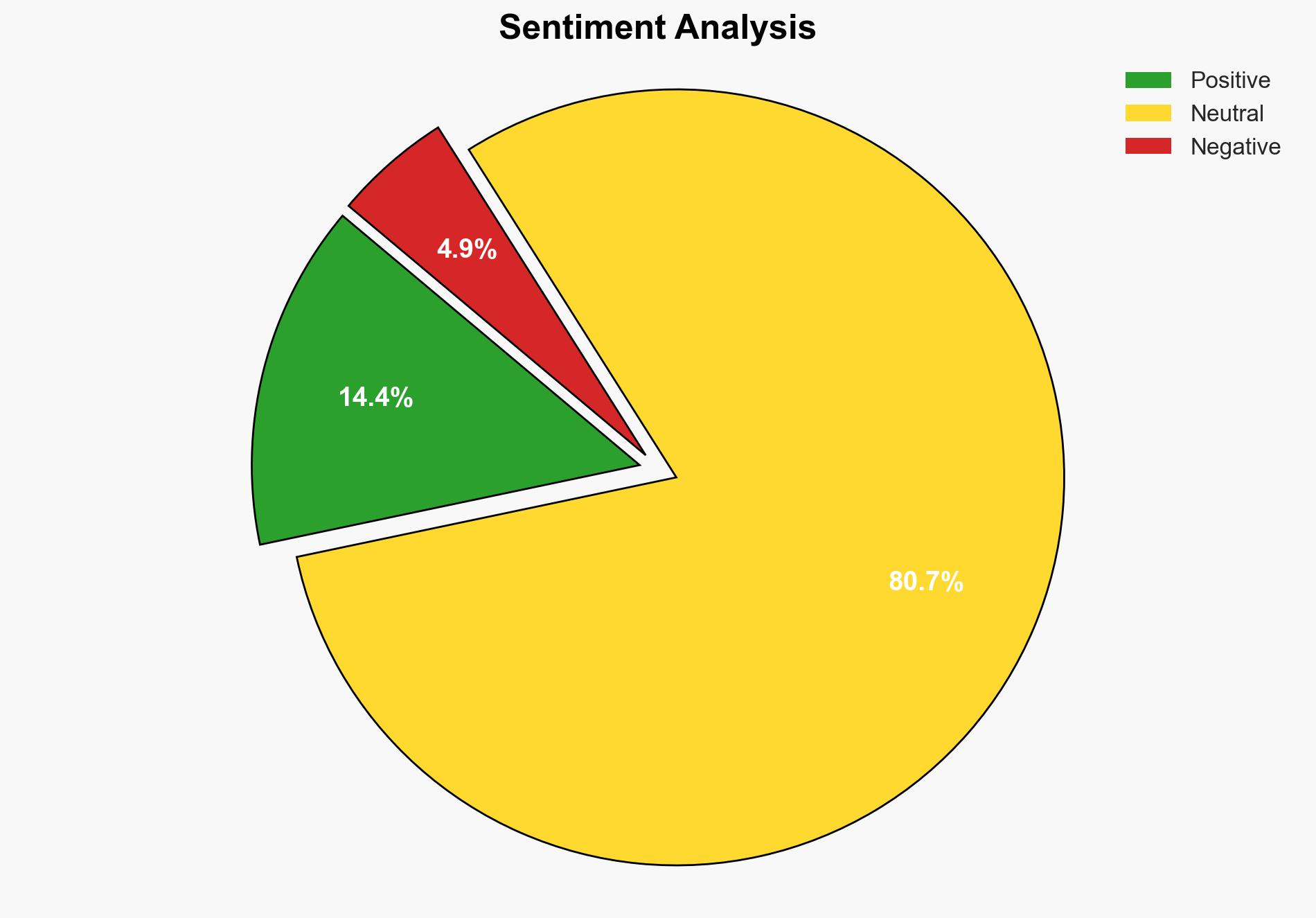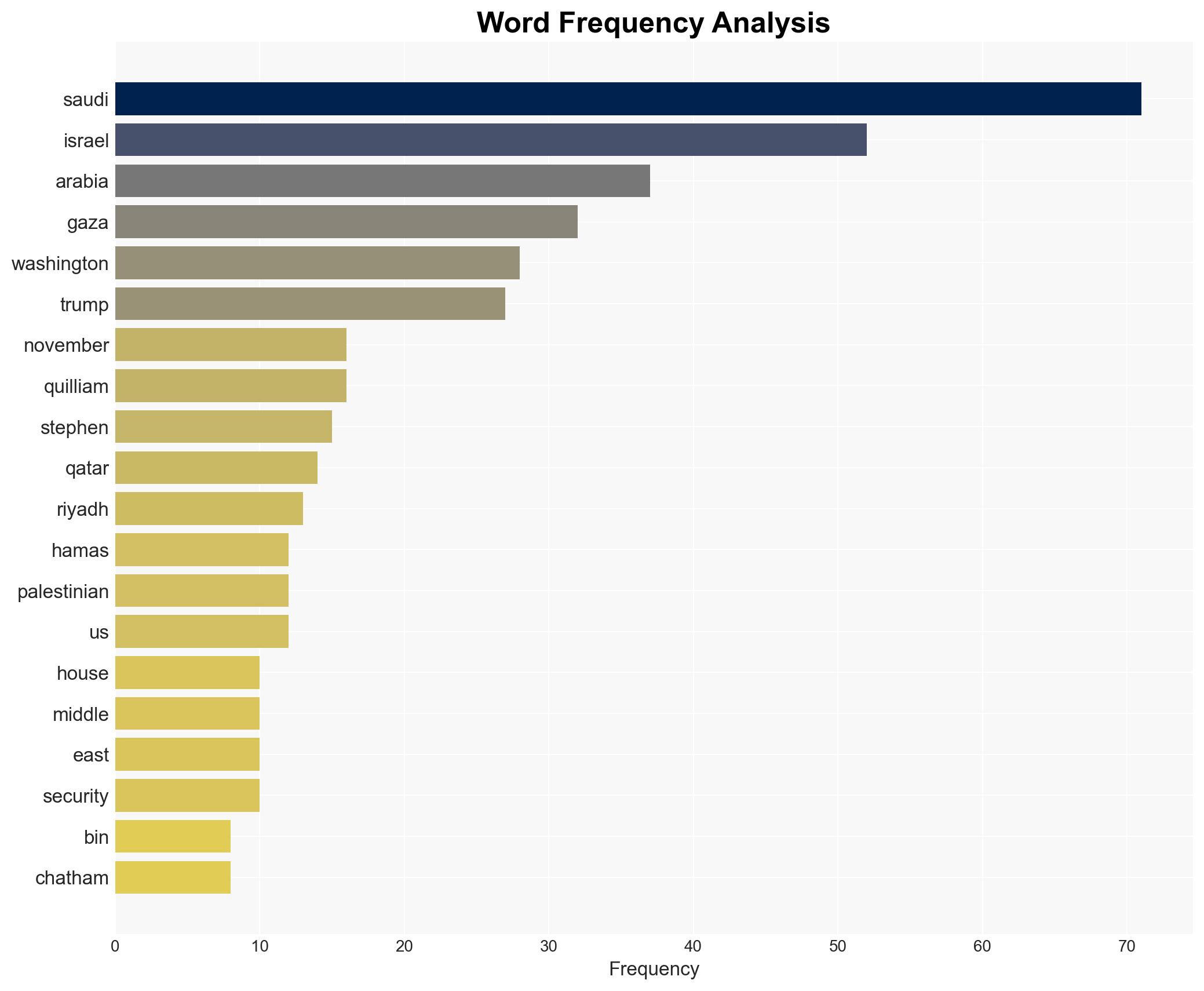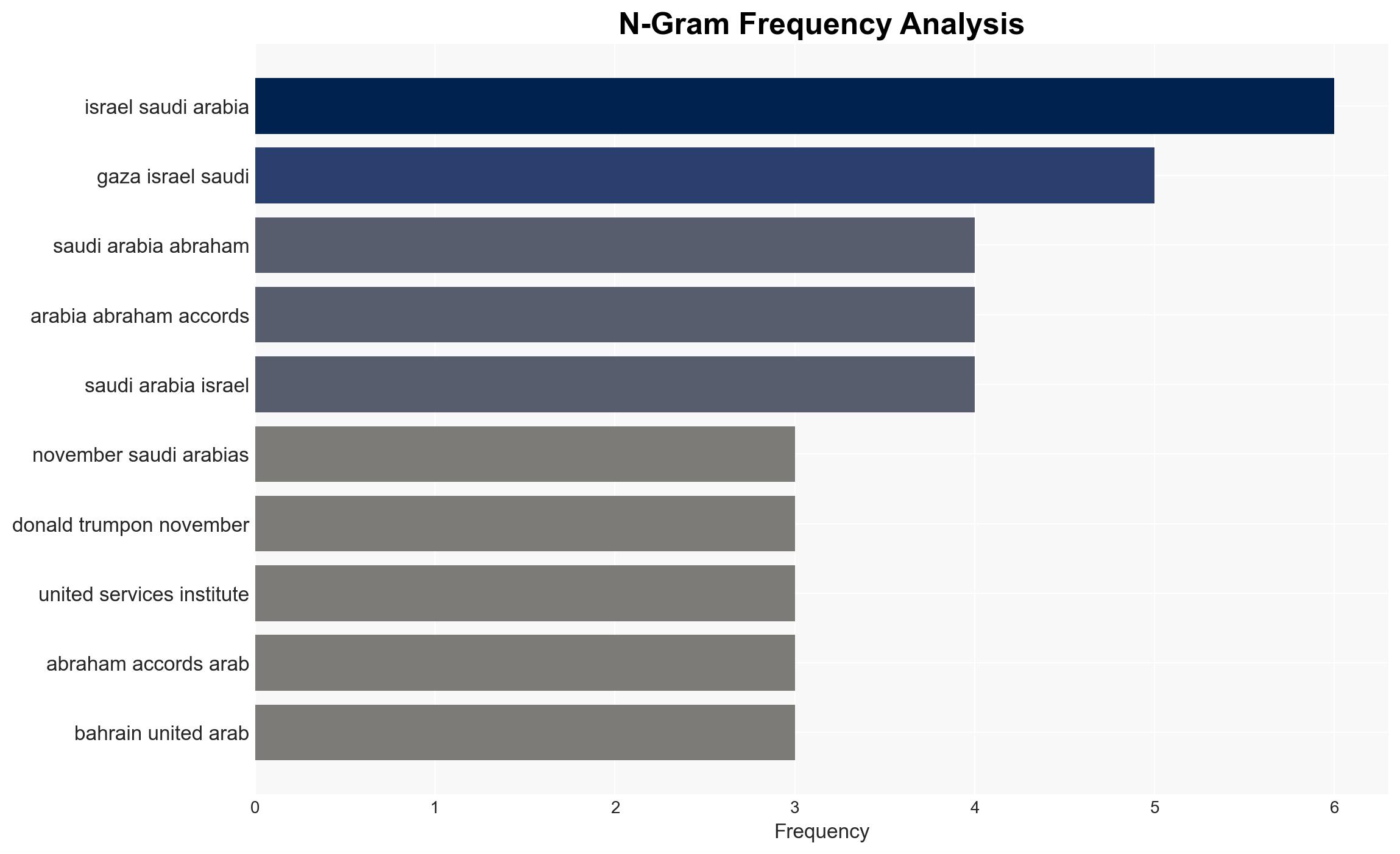MBS in Washington What is at stake for US-Saudi relations – DW (English)
Published on: 2025-11-16
AI-powered OSINT brief from verified open sources. Automated NLP signal extraction with human verification. See our Methodology and Why WorldWideWatchers.
Intelligence Report:
1. BLUF (Bottom Line Up Front)
The strategic judgment is that the visit of Mohammed bin Salman (MBS) to Washington is primarily aimed at strengthening US-Saudi relations through defense and economic agreements, with a moderate confidence level. The most supported hypothesis is that MBS seeks to secure a security deal and economic collaboration with the US, leveraging the geopolitical situation in the Middle East. Recommended actions include closely monitoring the outcomes of the visit and preparing for potential shifts in regional alliances.
2. Competing Hypotheses
Hypothesis 1: MBS’s visit is primarily focused on securing a US-Saudi security agreement and economic collaboration, particularly in defense and nuclear technology, to bolster Saudi Arabia’s regional influence.
Hypothesis 2: The visit is a diplomatic maneuver to normalize relations with Israel under the Abraham Accords framework, contingent on US mediation and addressing the Palestinian issue.
Assessment: Hypothesis 1 is more likely given the immediate security concerns in the region, the focus on defense and nuclear technology, and the historical context of US-Saudi relations. Hypothesis 2 is plausible but less likely due to the complex dynamics involving Israel and Palestine.
3. Key Assumptions and Red Flags
Assumptions: The US is willing to engage in significant defense and economic agreements with Saudi Arabia. MBS is committed to enhancing Saudi’s regional power through US collaboration.
Red Flags: Potential deception in Saudi’s commitment to the Palestinian issue. Overreliance on US support without considering regional backlash.
4. Implications and Strategic Risks
The potential signing of a US-Saudi security agreement could escalate tensions with Iran and complicate US relations with other Gulf states. Economic collaboration in nuclear technology may raise proliferation concerns. Failure to address the Palestinian issue could hinder broader regional peace efforts and damage US credibility.
5. Recommendations and Outlook
- Monitor the outcomes of MBS’s visit for shifts in US-Saudi defense and economic policies.
- Engage with regional allies to mitigate potential backlash from a US-Saudi security agreement.
- Best-case scenario: Strengthened US-Saudi relations lead to regional stability and economic growth.
- Worst-case scenario: Increased regional tensions and proliferation risks due to new defense agreements.
- Most-likely scenario: Incremental progress in US-Saudi relations with ongoing challenges in regional diplomacy.
6. Key Individuals and Entities
Mohammed bin Salman (MBS), Donald Trump, Neil Quilliam, Michael Stephen, Benjamin Netanyahu.
7. Thematic Tags
Regional Focus, Middle East, US-Saudi Relations, Defense Agreements, Nuclear Technology, Abraham Accords
Structured Analytic Techniques Applied
- Causal Layered Analysis (CLA): Analyze events across surface happenings, systems, worldviews, and myths.
- Cross-Impact Simulation: Model ripple effects across neighboring states, conflicts, or economic dependencies.
- Scenario Generation: Explore divergent futures under varying assumptions to identify plausible paths.
- Cognitive Bias Stress Test: Structured challenge to expose and correct biases.
Explore more:
Regional Focus Briefs ·
Daily Summary ·
Support us
·





